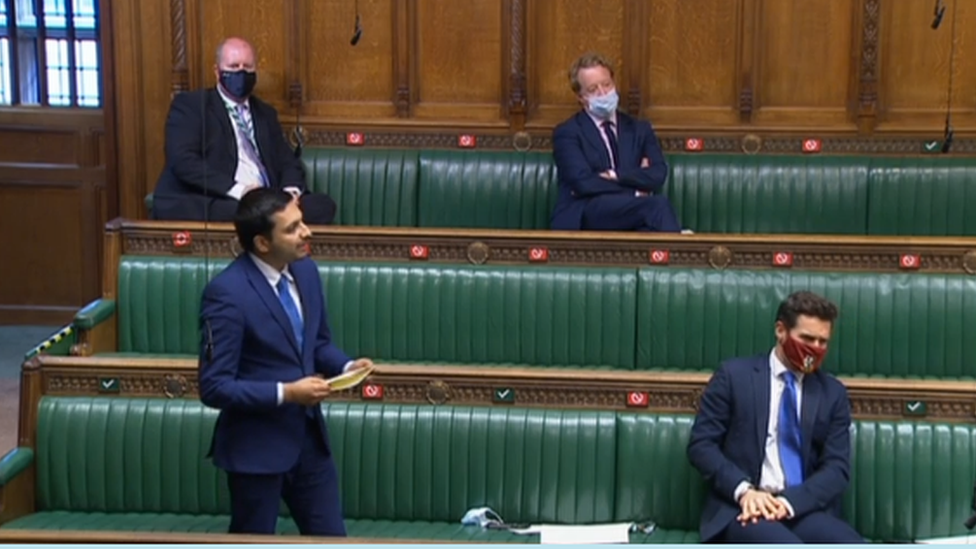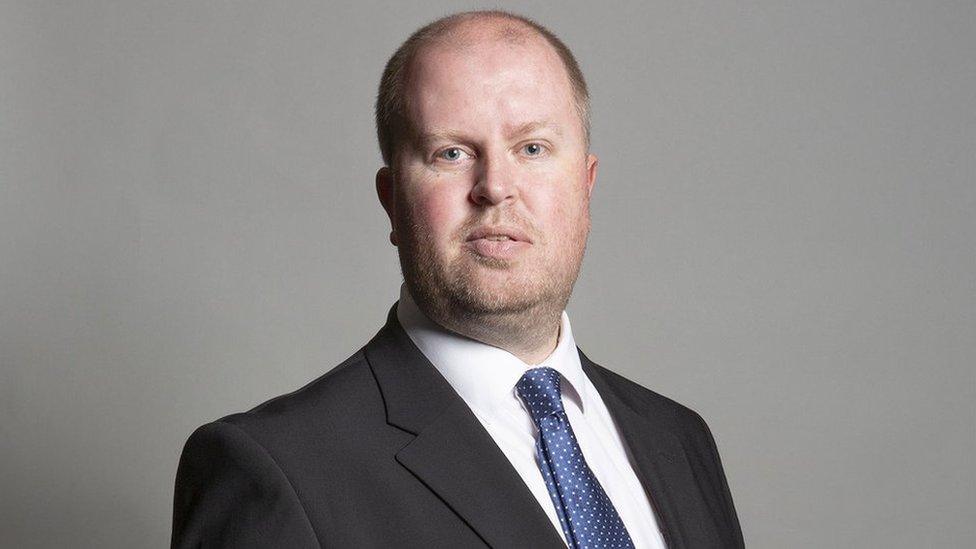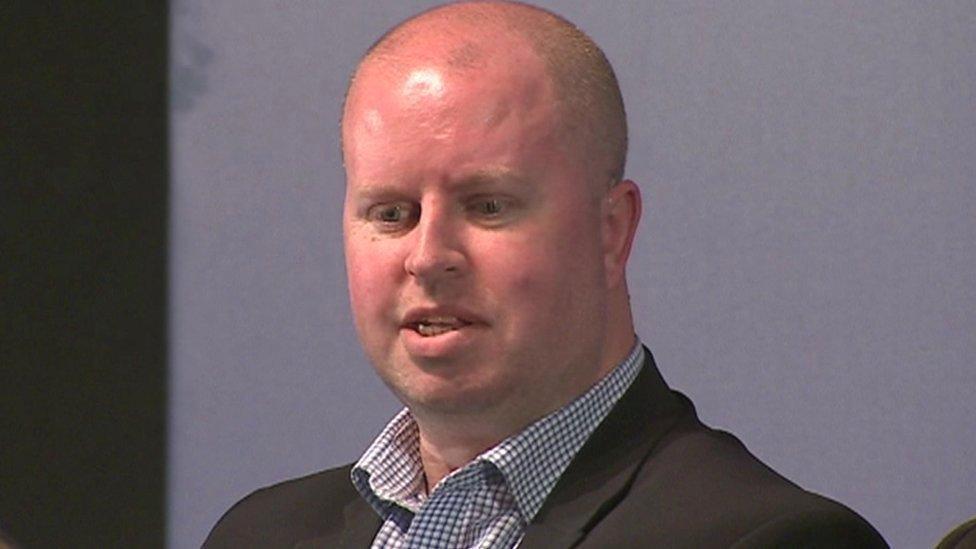Parliament: Sexual harassment MP Rob Roberts returns to the Commons
- Published

Rob Roberts appeared in Parliament for the first time after his six week suspension ended
An MP suspended from Parliament after sexually harassing a member of his staff has returned to the Commons despite calls to stay away.
Delyn MP Rob Roberts was suspended from the house for six weeks after a panel heard he propositioned a staff member and told him to be "less alluring".
He returned to the Commons on Wednesday after his suspension ended, with a Tory source describing the move as "brazen".
Mr Roberts has not responded to the BBC's request for comment.
The MP had previously said he had apologised for a "completely improper" breach of trust "in the MP-staff relationship" and he would continue to serve his constituency.
He has had his party whip suspended, meaning he returns as an independent MP, but is still a Conservative Party member - which the party has said is "under review".
Mr Roberts suspension came after an independent panel investigated sexual harassment complaints by a former employee, which found he had committed a "serious and persistent breach of the sexual misconduct policy".
The former employee told BBC Wales that Mr Roberts repeatedly propositioned him and asked him to be "less alluring".
Why did Rob Roberts return to the Commons?
Mr Roberts returned to the Commons on Wednesday, to speak in the second reading of the Health and Social Care Bill, after his suspension ended on 8 July- and was criticised by some.
Labour's shadow minister for domestic violence and safeguarding, Jess Phillips, attempted to intervene during Mr Robert's speech, but he rejected her intervention.
This week, Mr Roberts also voted in Parliament using the government's deputy chief whip Stuart Andrew MP as his proxy to cast his vote.
The Conservative Party said it was convention for government whips to cast votes on behalf of MPs who have had the party whip withdrawn, and Mr Andrew had been voting for a number of MPs, including former Plaid Cymru MP Jonathan Edwards and former SNP MP Margaret Ferrier.
The Shadow Leader of the House of Commons, Thangam Debbonaire, raised concerns about his return in the House of Commons, asking the deputy speaker of the House: "Unfortunately one of the best predictors of future risk is past behaviour.
"On behalf of colleagues and staff who have raised this with me, in the interest of safeguarding, what risk assessment has been done of the return of this member to the estate, whether experts have been consultants, if there is a risk management plan in place, and what guidance has been provided to staff to reassure them?".
The deputy speaker said while it was "not appropriate" to comment on individual cases "the chair has no authority to prevent a member from attending the estate".
She added that an Independent Complaints and Grievance Scheme helpline was available for "anyone who has witnessed or experienced bullying, harassment or sexual misconduct".
A Conservative Party source said: "Rob Roberts isn't helping himself by brazenly walking around Parliament with just a week left of the House sitting. He needs to show some contrition and tact."
Why can Rob Roberts return to the Commons?
The MP was able to return because suspensions issued by Parliament's Independent Expert Panel do not automatically lead to recall petitions - something that can trigger a by-election - unlike those imposed by Parliamentary committees.
Labour and UK ministers say this legal "loophole" should be closed, and Labour have tabled a motion to try make any rule changes apply retrospectively, including to Mr Roberts so a recall petition could be triggered in his Delyn seat.
But BBC Wales understands the UK government do not currently want any rule changes to apply retrospectively.
Senior cross-party MPs, including two government ministers, have called on the MP to resign.
- Published8 July 2021

- Published3 June 2021

- Published25 May 2021

- Published25 May 2021
